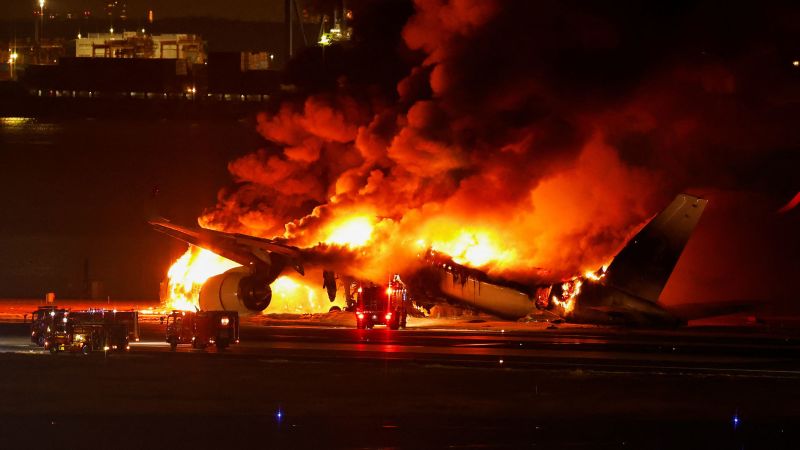Watching the footage of the Japan Airlines collision at Tokyo’s Haneda airport, it seems miraculous that anyone has emerged unscathed.
Yet while, tragically, five of six crew on the Japan Coast Guard Dash 8 plane it struck during landing on Tuesday have died, all 379 passengers and crew onboard the Airbus A350 have survived the accident.
While investigations into what happened in the incident, which saw the JAL plane erupt in a fireball, are ongoing, experts say the successful evacuation is down to a combination of modern safety standards and Japan Airlines’ own rigorous safety culture.
I read somewhere that the whole country observes a disaster preparedness day once a year, where people practice various safety drills. Thought that was a kinda cool idea.
An incredibly cool idea.
This should take off globally.
I don’t think it was the taking off that was problematic.
Ba dum tss
Credit can be given to the excellent safety culture, but also the safety mechanisms of the A359: while only three evacuation slides could be used, these slides remained inflated and illuminated well after the evacuation completed and most of the fuselage was a raging inferno. Furthermore, the carbon fiber body held strong despite the impact and well into the subsequent blaze.
I believe there still remains an opportunity to improve, as the evacuation was only completed 18 minutes after the collision. JAL can consider themselves extremely fortunate that the cabin was not more severely affected by smoke.
I have provided sources for this in my detailed write-up on the incident.
Holy shit. Phenomenal write up, thanks for sharing.
Admiral Cloudberg? Is that you?
Great write-up.
Haha, no, but I consulted briefly with her through Reddit.
I wish she would join us here on Lemmy.




